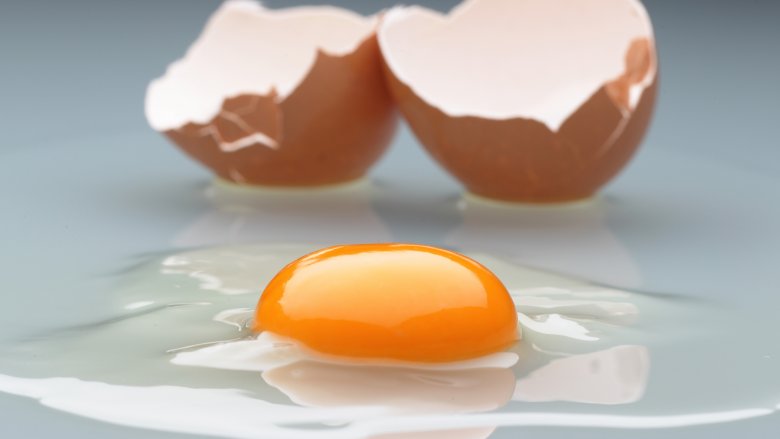How To Tell The Difference Between Regular And Organic Eggs
"Organic" is one of those buzzwords that has taken the grocery industry by storm, and in the egg department, organic egg sales are booming (via New Hope Network). So how do you know if that carton of eggs you've picked up in the grocery store labeled "organic" is the real deal? Considering that the United States Department of Agriculture now believes the marketplace has been flooded with millions of pounds of fake organic food, spotting real organic eggs is going to require more than just reading the label (via Grub Street).
Speaking of labels, ignore hollow marketing words like "farm fresh" and "natural." The Atlantic points out that this is just a way for the egg industry to play into consumers' good intentions to buy organic. What should jump out at you on a label are the words, "Certified Organic" or "USDA Organic." These chickens were not confined to cages and had at least some fresh air and sunshine. In addition to better living standards than the eggs from chickens stuck in cages, this government-approved label also means the birds were fed an organic, antibiotic-free, and pesticide-free diet.
Organic eggs differ from regular eggs on the inside
As we said, you'll need to do more than read the label to really be sure those eggs are organic. First off, get it out of your head that eggs with brown shells are always going to be healthier. That's just bogus. The key sign to take note of is what's inside that shell — the yolk.
Sometimes you have to break a few eggs to uncover the truth, and that's exactly the case for verifying organic eggs. Never mind what the label on the egg carton says, if you crack that egg and the yolk is yellow in color, that's a good sign that it wasn't organically raised (via Wide Open Pets). The hen that laid it likely wouldn't know what to do if she ever saw any natural vegetation. Commercial factory farm eggs will look like this.
Crack an egg to see if it's regular or organic
Organic eggs tend to have more of an orange color, and pasture-raised eggs will have an especially dark orange color because the chicken was free to run around eating various plants and insects. The USDA says that the color of an egg's yolk doesn't affect its nutritional value, but many chefs do prefer to cook with eggs that have a darker orange yolk because they say the flavor is better (via The Today Show).
At the end of the day, much like us, a chicken's diet has an impact on its overall health and the eggs that it produces.

